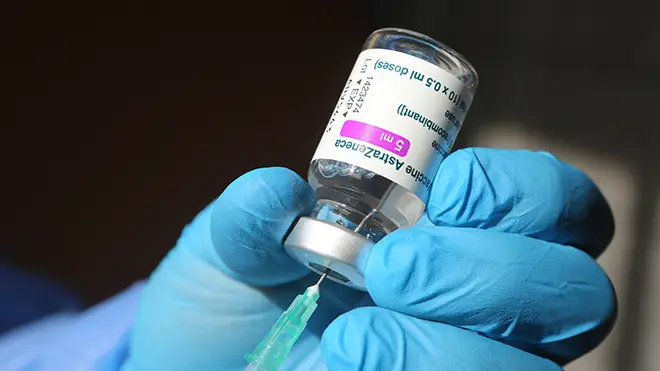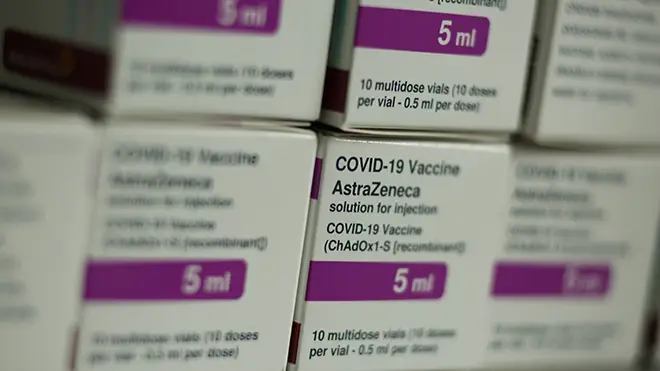
Richard Spurr 1am - 4am
7 April 2021, 12:50 | Updated: 7 April 2021, 15:38

What is the AstraZeneca blood clot risk? Medical regulators in the UK and Europe are investigating the Oxford/AstraZeneca Covid-19 vaccine and a possible link to blood clots. Should we be worried? And what have the experts said?
The Covid-19 vaccine rollout in Europe has been causing concern in recent months, especially around the AstraZeneca vaccine, as extremely rare cases of blood clots have emerged.
Countries including Norway, Austria and Italy have all temporarily suspended the use of the Oxford/AstraZeneca vaccine as a “precautionary step” over concerns of its safety. The advice to people in the UK remains the same and that everyone called up for the jab should take it as the risk is extremely low.
Experts and healthcare officials have insisted the vaccine is safe but have listed blood clots as a 'very rare' side effect to the AstraZeneca vaccine.
Related article: What Covid-19 vaccines are available in the UK and how do they compare?
So which countries have banned the AstraZeneca vaccine? Is there a link between the Covid vaccine and blood clots? And what are the warning signs of a blood clot if you are concerned? Here are the latest details:


Aspirin is 'probably more dangerous' than Oxford jab says SAGE member
At present, numerous countries including Ireland, Austria, Denmark, Estonia, Lithuania, Luxembourg, Latvia and Italy, as well as non-EU countries Norway and Iceland, have all halted their rollout as they await more evidence.
The ban is said to be temporary as further research is carried out.
As part of the latest announcement, unusual blood clots will now be listed as a 'very rare' side effect to the AstraZeneca jab.
The European Medicines Agency (EMA) said most of the blood clot cases had occurred in women under 60 within two weeks of receiving the vaccine, and suggested the issue came from an immune response.
"The currently available data did not allow us to identify a definite cause," an EMA official said. Further studies will be carried out."
Symptoms to be aware of include shortness of breath, chest pain and swelling in the leg.

Business minister: AZ jab has 'no proven links yet' with blood clots
The experts from health organisations across the globe have said the vaccine is safe.
The former head of the UK's medicines regulator has told LBC he has "no reservations" about the Oxford/AstraZeneca vaccine.
Former MHRA chief executive Professor Sir Kent Woods said: "Yes I would in fact" when asked if he would take the jab.
“I think the problem is that what we are looking at is such a very very rare event, this particular type of blood clot is such a rare event, that the limit of what is detectable as an adverse drug reaction, is something we need to bear in mind at all times," he replied.
"The risks of Covid are much higher."
Experts continue to emphasise the benefits of the vaccine outweigh the risks and that it’s likely the clot cases could be coincidental due to the sheer number of people getting the vaccine.
The World Health Organization and the European Medicines Agency both say there is an overwhelming argument for using the AstraZeneca jab.
Medical regulators are working to establish ways to identify those who might be more at risk of the extremely rare clots. In the UK, more than 18 million have had the jab with only a handful of cases of cerebral venous sinus thrombosis (CVST).
Doctors have been told to be alert to the symptoms of CVST – the main symptoms being headache, blurred vision and fainting.